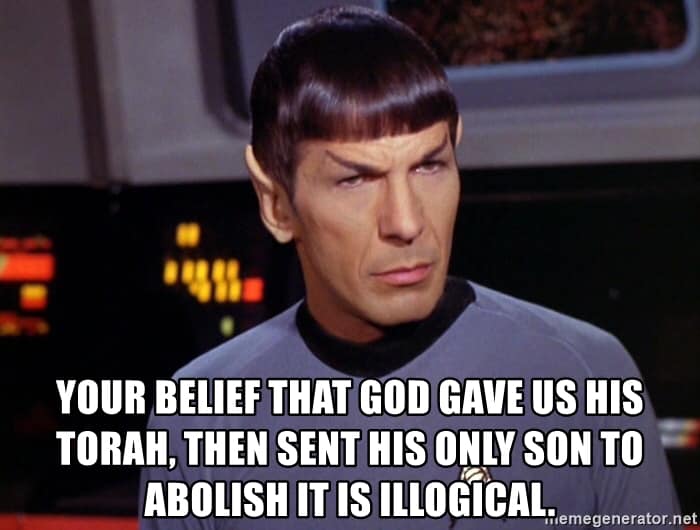Mat 5:17 Think not that I am come to destroy the law, or the prophets: I am not come to destroy, but to fulfil.
G2647
καταλύω
kataluō
Thayer Definition:
1) to dissolve, disunite
1a) (what has been joined together), to destroy, demolish
1b) metaphorically to overthrow, i.e. render vain, deprive of success, bring to naught
1b1) to subvert, overthrow
1b1a) of institutions, forms of government, laws, etc., to deprive of force, annul, abrogate, discard
1c) of travellers, to halt on a journey, to put up, lodge (the figurative expression originating in the circumstance that, to put up for the night, the straps and packs of the beasts of burden are unbound and taken off; or, more correctly from the fact that the traveller’s garments, tied up when he is on the journey, are unloosed at it end)
Part of Speech: verb
A Related Word by Thayer’s/Strong’s Number: from G2596 and G3089
Citing in TDNT: 4:338, 543
Naturally Christ did not come to destroy the law but he did come to fulfill it:
Mat 5:17 Think not that I am come to destroy the law, or the prophets: I am not come to destroy, but to fulfil.
G4137
πληρόω
plēroō
Thayer Definition:
1) to make full, to fill up, i.e. to fill to the full
1a) to cause to abound, to furnish or supply liberally
1a1) I abound, I am liberally supplied
2) to render full, i.e. to complete
2a) to fill to the top: so that nothing shall be wanting to full measure, fill to the brim
2b) to consummate: a number
2b1) to make complete in every particular, to render perfect
2b2) to carry through to the end, to accomplish, carry out, (some undertaking)
2c) to carry into effect, bring to realisation, realise
2c1) of matters of duty: to perform, execute
2c2) of sayings, promises, prophecies, to bring to pass, ratify, accomplish
2c3) to fulfil, i.e. to cause God’s will (as made known in the law) to be obeyed as it should be, and God’s promises (given through the prophets) to receive fulfilment
Part of Speech: verb
A Related Word by Thayer’s/Strong’s Number: from G4134
Citing in TDNT: 6:286, 867
The word means to complete. When something is incomplete then is completed it is done and finished. Something new then can be started and this is what Christ came to do. The old law was completed so a new law (which is a new Covenant) could be introduced.
It wouldn't be proper to introduce a new law if the old one was not completed and only following that law perfectly could fulfill it.
So the old law was fulfilled and completed and could then be replaced by a new law. This makes the first law "old" which Paul said was decaying. He wanted to show how to let go of the old law and make the new law the one for believers to desire.

